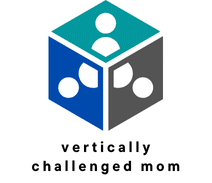Grow your hacking and pentesting knowledge with top courses
Elevate your hacking and penetration testing expertise with the right courses. From comprehensive beginner programs to advanced certifications, a wealth of resources awaits. Emphasizing hands-on experience ensures you gain practical skills essential for success in this dynamic field. Whether you're looking to kickstart your career or deepen your knowledge, the journey to becoming a proficient ethical hacker starts here. Let’s explore the top courses available to meet your learning needs.
Top Hacking and Penetration Testing Courses
Choosing the right hacking courses can significantly enhance your skills in ethical hacking and cybersecurity. For beginners, it's crucial to start with courses that cover foundational topics like system hacking and cryptography, offering hands-on experience. Platforms like Udemy and Cybrary are popular choices, providing a range of courses to suit different expertise levels.
A lire aussi : How can you use AWS CloudFormation for infrastructure as code?
For those looking to advance, penetration testing courses are essential. The Certified Ethical Hacker (CEH) certification is highly recommended for those seeking career advancement. Courses such as "Certified Ethical Hacking (v12)" and "Kali Linux" are noteworthy, with high ratings for their comprehensive coverage of ethical hacking techniques.
Courses that emphasize practical applications and real-world scenarios, such as Capture The Flag (CTF) challenges, are invaluable. These not only teach theoretical knowledge but also involve practical skills through hands-on pentesting labs. Programs like HackerDna's Ethical Hacking Course focus on advanced penetration testing and CTF challenges, providing crucial skills for real-world applications.
A lire aussi : Transform your content with audio transcription and subtitle generation
It's important to select courses that are regularly updated to stay relevant with current tools and techniques. Whether you're a beginner or an advanced learner, these courses offer the opportunity to develop practical skills necessary for a successful career in cybersecurity.
Essential Certifications for Ethical Hackers
Overview of Key Certifications in Ethical Hacking
Earning top-rated hacking certifications is a strategic step for those pursuing cybersecurity careers. The Certified Ethical Hacker (CEH) is a widely recognized credential, providing a comprehensive understanding of ethical hacking principles and methodologies. Another notable certification is the Offensive Security Certified Professional (OSCP), known for its rigorous, hands-on exam that challenges candidates to demonstrate practical pentesting skills. These certifications validate a professional's ability to identify vulnerabilities and execute penetration testing effectively.
Benefits of Certifications in Career Advancement
Certifications in ethical hacking are more than just credentials; they are gateways to career advancement. They signal to employers that a candidate possesses the necessary skills and knowledge to protect and secure digital infrastructures. Certified professionals often enjoy better job prospects, higher salaries, and opportunities for advancement. With the cybersecurity job market continually expanding, earning certifications can significantly enhance one's employability and professional credibility.
Recommendations for Specialized Training Programs
For those seeking specialized training, programs focusing on cybersecurity certifications paths are invaluable. These programs offer targeted learning experiences, covering areas like vulnerability assessment, network security, and web application pentesting. Engaging in such training not only bolsters one's expertise but also prepares individuals for the dynamic challenges of the cybersecurity landscape.
Resources for Enhancing Hacking Skills
Recommended Platforms and Websites for Hacking Education
To effectively enhance your hacking skills, leveraging online resources is essential. Platforms like Udemy, Cybrary, and StationX offer comprehensive courses tailored to various expertise levels. These platforms provide beginner hacking tutorials and advanced courses focusing on penetration testing and ethical hacking. Courses often include hands-on pentesting labs and real-world scenarios, crucial for practical learning. Additionally, you can discover ethical hacking courses with HackerDna for advanced penetration testing and Capture The Flag (CTF) challenges.
Importance of Community and Forums in Learning
Engaging with online communities and forums can significantly boost your hacking knowledge. Platforms like Reddit and Stack Exchange host vibrant communities where beginners and experts share insights, solve problems, and discuss the latest trends in cybersecurity. Participating in these forums facilitates networking, provides diverse perspectives, and keeps learners updated on the latest tools and techniques.
Suggested Reading Materials and Additional Tools for Practical Skills
Expanding your knowledge through reading materials is vital. Books like "The Web Application Hacker's Handbook" and "Hacking: The Art of Exploitation" offer in-depth insights into hacking methodologies and tools. Additionally, using tools such as Metasploit, Wireshark, and Nmap can enhance your practical skills, enabling you to apply theoretical knowledge in real-world scenarios effectively.
